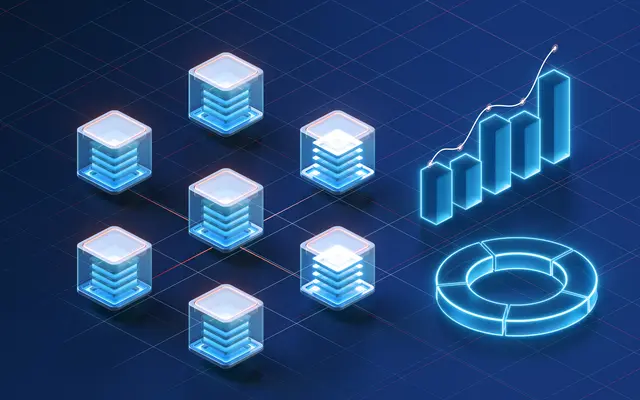Revolutionizing Load Planning and Optimization Automation with Python, AI, and Cloud
In today’s fast-paced supply chain industry, optimizing load planning and optimization is crucial for businesses to streamline their operations, reduce costs, and enhance overall efficiency. Traditional manual processes are often time-consuming, error-prone, and fail to keep pace with the dynamic nature of supply chains.
Introducing the Power of Automation
Enter the realm of automation, where Python, AI, and cloud-based solutions come together to revolutionize load planning and optimization. By leveraging these technologies, businesses can automate complex tasks, improve accuracy, and gain real-time visibility into their operations.
Load Planning and Optimization Automation with Python
Python, a versatile programming language, provides a robust platform for developing customized automation solutions. Its extensive libraries and modules enable seamless integration with various data sources, optimization algorithms, and visualization tools. Python scripts can automate the generation of load plans, considering multiple factors such as shipment volumes, weights, dimensions, and delivery routes.
AI for Intelligent Load Optimization
AI algorithms play a pivotal role in optimizing load plans. By analyzing historical data and learning from patterns, AI can identify the most efficient packing arrangements and loading sequences. This intelligence ensures optimal space utilization, minimizes empty space, and optimizes weight distribution, leading to significant cost savings and improved vehicle efficiency.
Cloud-Based Solutions for Real-Time Visibility
Cloud-based solutions provide a centralized platform for managing and monitoring load planning and optimization processes. Real-time data from sensors and tracking devices can be integrated into cloud applications, providing visibility into load progress, vehicle locations, and delivery status. This enables businesses to make informed decisions, adjust plans on the fly, and respond proactively to unforeseen events.

Python, AI, and Cloud: The Cornerstones of Load Planning and Optimization Automation
Unleashing the Power of Unattended Bots with Python
Python’s versatility extends to the development of unattended bots that can automate complex load planning and optimization tasks. These bots can continuously monitor data sources, trigger actions based on predefined rules, and execute optimization algorithms without human intervention. By automating repetitive and time-consuming processes, unattended bots free up valuable human resources for more strategic initiatives.
Empowering Attended Bots with Python’s Customization
Attended bots provide a collaborative approach to load planning and optimization, assisting human operators in real-time. Python’s extensive libraries and modules enable the development of highly customized attended bots that can adapt to specific business requirements. These bots can provide guidance, automate data entry, and offer decision support, enhancing the efficiency and accuracy of human operators.
Cloud Platforms: The Ultimate Automation Orchestrators
Cloud platforms offer a comprehensive suite of features and capabilities that far surpass traditional RPA/workflow tools orchestrators. They provide scalable infrastructure, seamless integration with various applications, and advanced analytics capabilities. By leveraging cloud platforms, businesses can orchestrate complex load planning and optimization automation processes across multiple systems and data sources.
AI: Enhancing Accuracy and Handling Edge Cases
AI plays a crucial role in improving the accuracy and robustness of load planning and optimization automation. AI algorithms can analyze historical data, identify patterns, and learn from experience. This enables them to handle edge cases, make intelligent decisions, and continuously optimize load plans. Specific AI techniques like image recognition, natural language processing (NLP), or Generative AI can further enhance the capabilities of these automations. For example, image recognition can automate the inspection of goods for damage or compliance, while NLP can process complex customer requests and generate optimized load plans accordingly.

Building the Load Planning and Optimization Automation with Python and Cloud
Process Analysis and Automation
To automate load planning and optimization, we first analyze the sub-processes involved:
- Data Collection: Gathering data on shipment volumes, weights, dimensions, delivery routes, and vehicle capacities.
- Load Plan Generation: Using optimization algorithms to generate efficient load plans that minimize empty space and ensure even weight distribution.
- Instruction Generation: Creating automated loading instructions for warehouse staff or equipment operators.
- Real-Time Tracking: Monitoring load progress and providing real-time updates to stakeholders.
Python and Cloud Implementation
Using Python and cloud platforms, we can automate these sub-processes as follows:
- Data Collection: Python scripts can extract data from various sources, such as spreadsheets, databases, and IoT devices, and store it in a centralized cloud repository.
- Load Plan Generation: Cloud-based optimization engines can process the collected data and generate optimized load plans using advanced algorithms.
- Instruction Generation: Python scripts can generate loading instructions based on the optimized load plans and send them to warehouse staff or equipment operators via mobile apps or other communication channels.
- Real-Time Tracking: Cloud-based dashboards and monitoring tools can provide real-time visibility into load progress, vehicle locations, and delivery status.
Data Security and Compliance
Data security and compliance are paramount in the supply chain industry. Python and cloud platforms offer robust security features and compliance certifications to ensure the protection of sensitive data.
Advantages of Python over No-Code RPA/Workflow Tools
While no-code RPA/workflow tools offer a quick start, they often lack the flexibility and customization capabilities of Python. Python allows for:
- Tailor-made Solutions: Developing highly customized automation solutions that meet specific business requirements.
- Integration with Diverse Systems: Seamlessly integrating with various data sources, optimization engines, and communication channels.
- Advanced Analytics: Leveraging Python’s extensive libraries for data analysis and optimization, enabling more sophisticated load planning and optimization.
Algorythum’s Approach
Algorythum takes a different approach by focusing on custom Python-based automation solutions due to client dissatisfaction with the performance and limitations of off-the-shelf RPA/workflow tools. Our approach offers:
- Proven Results: A track record of successful load planning and optimization automation implementations, delivering significant cost savings and efficiency gains.
- Expertise and Innovation: A team of experienced Python developers and supply chain experts, constantly innovating and pushing the boundaries of automation.
- Customer-Centric: A commitment to understanding client needs and developing tailored solutions that meet their unique requirements.

The Future of Load Planning and Optimization Automation
The future of load planning and optimization automation holds exciting possibilities for further enhancement using emerging technologies.
- Integration with IoT and AI: Leveraging IoT sensors and AI algorithms to monitor load progress in real-time, identify anomalies, and adjust load plans accordingly.
- Predictive Analytics: Using AI to analyze historical data and predict future demand patterns, enabling more efficient load planning and resource allocation.
- Autonomous Vehicles: Automating the loading and unloading process using autonomous vehicles, reducing the need for manual labor and improving safety.
By subscribing to our newsletter, you’ll stay up-to-date on the latest advancements in load planning and optimization automation. Contact our team today for a free feasibility and cost-estimate for your custom automation requirements. Together, we can revolutionize your supply chain operations and drive significant business value.

Algorythum – Your Partner in Automations and Beyond
At Algorythum, we specialize in crafting custom RPA solutions with Python, specifically tailored to your industry. We break free from the limitations of off-the-shelf tools, offering:
- A team of Automation & DevSecOps Experts: Deeply experienced in building scalable and efficient automation solutions for various businesses in all industries.
- Reduced Automation Maintenance Costs: Our code is clear, maintainable, and minimizes future upkeep expenses (up to 90% reduction compared to platforms).
- Future-Proof Solutions: You own the code, ensuring flexibility and adaptability as your processes and regulations evolve.









